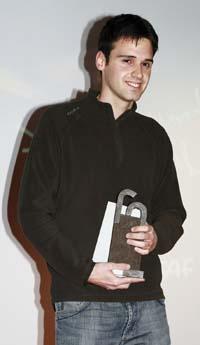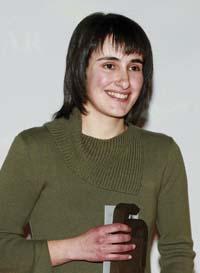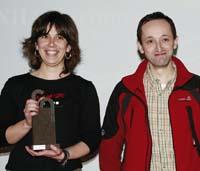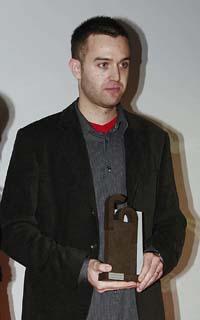Short with winners
1st prize: The Railroad Revolution

Author: Related information
I think people will find a lot of things they don't know. The truth is that we are used to seeing trains in our surroundings. But we often see the train as noisy, slow and, perhaps, an obstacle. With reading this article, I think people are going to see that trains are going to change a lot in the coming years and that they are going to become something totally different.
The truth is that they are small technologies that will often not be seen directly, but will be there. For example, in the coming years we will begin to see the first trains that can go alone. At present there are some cases, even if they are not known. For example, the Bilbao metro has drivers, but it can go alone.
Another novelty is that in the curves the most recent trains lean to one side to facilitate their displacement, as they do in motor racing. People inside the train don't realize it, but you get a much lower speed. And in addition, we use the railways we have, and that is very important from the ecological point of view, since no works are needed.
I'm doing an end of career project in telecommunications engineering, and it's about trains. One of the technologies I refer to in the article is the project. Therefore, I do not intend to leave aside the theme of trains.
Yes. And it is that, regardless of what I mentioned, I have heard of others because I like the subject, but I have had to read a lot of technical magazines. The Japanese, above all, have terrible material on high-speed trains and trains. Specialized magazines and jobs have everything.
2nd Prize: Old news

Author: Industrial maintenance
The article focuses on the old trees in general and, above all, in the Basque Country, the trees that once were screwed.
In two words, it explains why they are so special to us. On the one hand, because they are remnants of a culture and, on the other, because they are very interesting from the ecological point of view.
The English have long been interested in how trees get wet. There they have lost that culture and an English saw that here we want. The disguising technique is alive because the old chargers are alive. However, since coal is not manufactured, the technique is also practically lost, unless it is like a show when making txondorras, etc.
3rd Prize: Fish, genes and chips: freedom of expression from pollution

Author(s): Eider Bilbao Castellanos and Ibon Cancio Uriarte
Ibon: Fish, like all other living beings, have genetic information stored on chromosomes that are divided into genes. We are interested in knowing when, how, and what these genes are expressed. A new tool to work with these genes are microchips or microbildums. Microbildumas collect gene collections of different species and we investigate how these gene collections are expressed.
Eider: Each being has its own collection of genes, but depending on the medium and each one, the expression of the genes is changing. One of the changes in the environment is pollution, and we are interested in how this man-made contamination affects gene expression. We try to look for those genes and analyze what changes happen to them.
Youth Award: We love you, happy!

Author: Igor Aristegi Urkia
I have focused on the work and research of science on happiness, specifically in two areas: Pharmacology and Psychology. In Philosophy of Science the definition of science is a classic theme: what is the criterion for distinguishing what is science from what is not? Some disciplines are limited, such as Psychology. And I, implicitly, wanted to claim that psychology can also be science.
Not especially. It is not my direct subject (I investigate the Philosophy of the Mind), but it has something to do with it. And I have always been interested in the world of Pharmacology and some contributions of Psychology, and especially because it is a philosophical topic, happiness.





